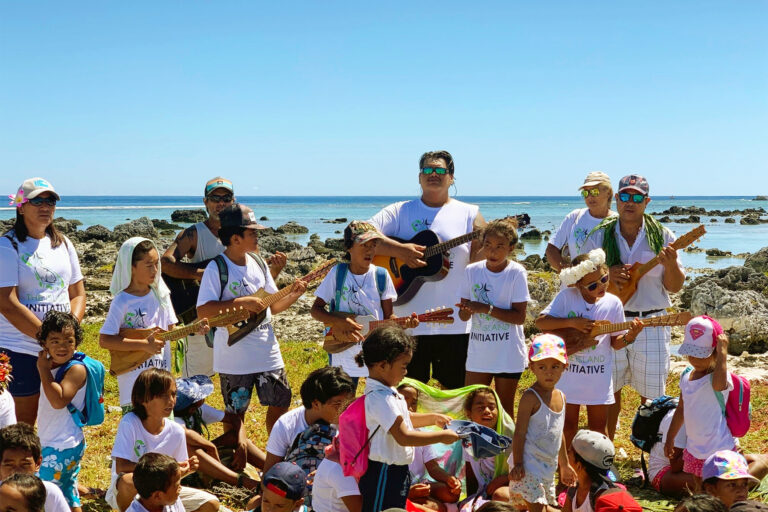By Amélie David
- In French Polynesia, fishing is of paramount importance. Many residents depend on fishing to feed their families and make a living.
- Confronted with a decline in fish stocks, communities across the country are reviving a traditional method of managing natural resources called rāhui.
- This bottom-up solution, managed by local communities with help from scientists and the government, although imperfect, appears to demonstrate some degree of effectiveness.
- The island of Tahiti currently counts 13 rāhuis, and more communities are establishing them as a way to fight poverty, sustain fishers’ incomes and regain their culture.
TAHITI — It’s Mass Day in Fenua Aihere. There are no roads to this part of the island of Tahiti — it’s only reachable by boat. It’s Monday, not the typical day for Mass in a Catholic community in French Polynesia. But here, everyone is a fisher or the wife, daughter or son of one. And on Sundays, they all head to the market to sell their catch, either in Taravao, the nearest city, or across the island in Papeete, French Polynesia’s capital.
Fishers will head into the clear blue lagoon of Tautira municipality, but they must avoid the waters right off Fenua Aihere. Since 2018, 265 hectares (655 acres), about 10% of Tautira’s lagoon, have been protected with a rāhui. This Tahitian word indicates an area of land or sea where it is forbidden to take any resources, and in some cases even to enter.
“I think it is a very good thing,” says Célestin Tevarai, a fisher like his father and grandfather, who sits on a bench in the church’s courtyard after the service, facing the blue lagoon. “It helps us protect the fish and to be sure that tomorrow our children will still be able to fish and feed themselves.”
Communities across French Polynesia have been reviving rāhui, a traditional method of managing natural resources, to enhance depleted fish stocks and protect the marine environment. What little data exist suggest this bottom-up solution, managed by local communities with help from scientists and the government, is at least somewhat effective. Scientists and conservationists are now working to expand the system while helping communities iron out problems and concerns.


